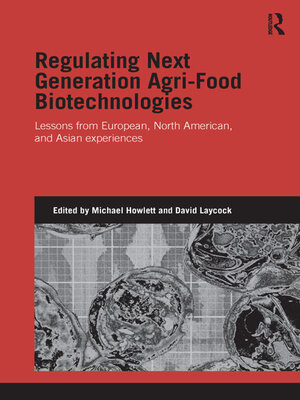Regulating Next Generation Agri-Food Biotechnologies
ebook ∣ Lessons from European, North American and Asian Experiences
By Michael Howlett

Sign up to save your library
With an OverDrive account, you can save your favorite libraries for at-a-glance information about availability. Find out more about OverDrive accounts.
Find this title in Libby, the library reading app by OverDrive.



Search for a digital library with this title
Title found at these libraries:
| Loading... |
Agri-food bio-technology policy and regulation is transitioning from an early period focused on genetic engineering technologies to 'next-generation' rules and regulatory processes linked to challenges originating in a wide variety of new technological processes and applications. Can lessons learned from past and current regulatory oversights of agricultural biotechnology – and other high-technology sectors – help us address new and emerging regulatory challenges in the agri-food genetics sector?
The expert contributors in this volume discuss the experiences of a wide range of North American, European and Asian countries with high technology regulation to address four key questions related to the past and future development of agri-food genomics regulation across the globe.
By updating, extending and challenging earlier empirical and theoretical social science perspectives on agricultural bio-technological regulation, this volume helps to inform future policy formulation. It will be of interest to practitioners and students of biotechnology, agriculture, and science and technology policy, and regulatory processes more generally.






